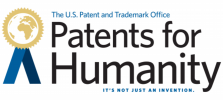Treatment of primary hyperoxalurias with small molecule lactate dehydrogenase inhibitors such as WO2018005807A1
Dengue Tetravalent Vaccine Containing a Common 30 Nucleotide Deletion in the 3'-UTR of Dengue Types 1, 2, 3, and 4
Novel Dopamine D2 Receptor Antagonists and Methods of Their Use
Meningitis Vaccine Designed for Use in Sub-Saharan Africa
Meningitis A is a devastating disease afflicting 26 countries in Africa’s meningitis belt across sub-Saharan Africa. Thousands of people would die or be disabled each year, such as the 1996-97 epidemic when 25,000 were killed and a quarter million afflicted. The disease primarily afflicts young adults and children, leaving many wage earners with permanent brain damage. The Meningitis Vaccine Program (MVP) was formed by the health non-profit PATH, the Bill & Melinda Gates Foundation, and the World Health Organization to combat this epidemic.
New Low-Cost Meningitis Vaccine for Sub-Saharan Africa
Meningococcal meningitis, a bacterial infection of the brain that sweeps across sub-Saharan Africa in an area called the “meningitis belt,” is now losing its power to inflict illness and death. Scientists and technology transfer officers from the U.S.


